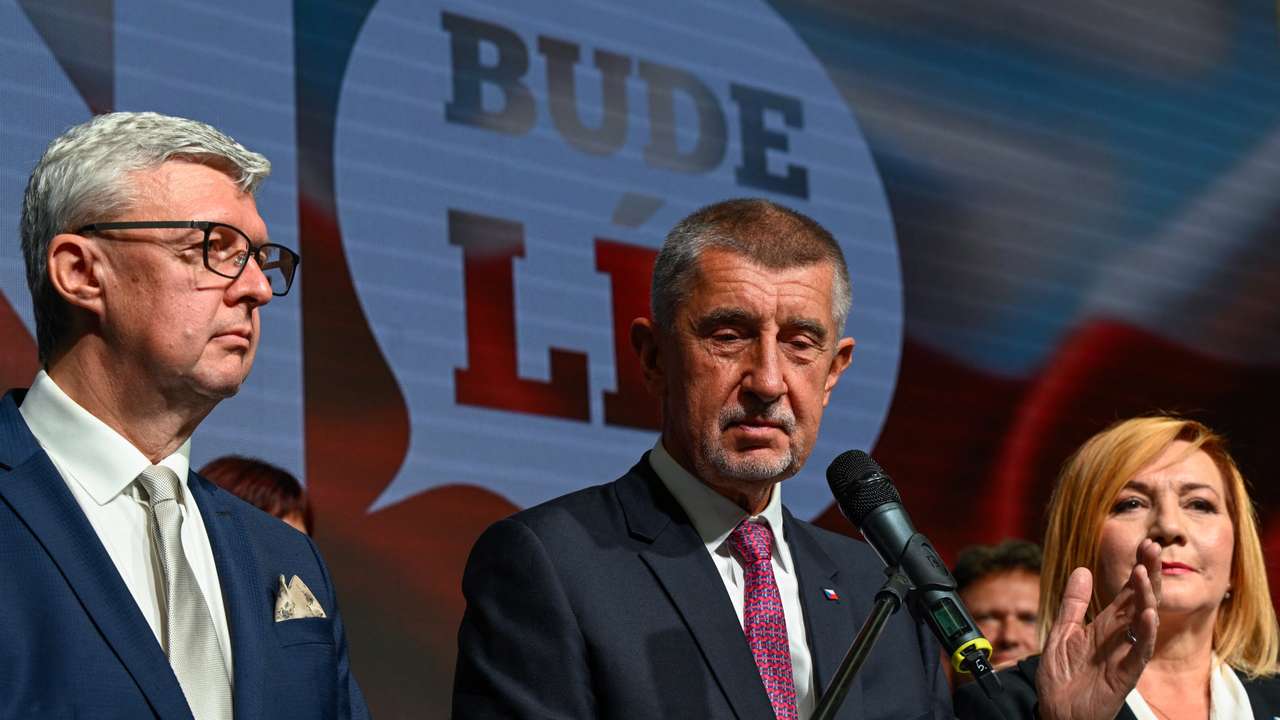Czech election winners agree on deficits, retirement age cap in government plan, reports say
- #EU Institutions
- #Central
- #Eastern Europe
- #Central Banks
- #Central Bank Events
- #Debt
- #Fixed Income Markets
- #Diplomacy
- #Foreign Policy
- #East European Countries
- #Emerging Market Countries
- #European Union
- #Europe
- #Currencies
- #Foreign Exchange Markets
- #Government Borrowing Requirement Data
- #Government Finances
- #National Government Debt
- #Inflation Data
- #Lawmaking
- #Money Markets
- #Monetary
- #Fiscal Policy
- #Policy Makers
- #government
- #Politics
- #Retirement
- #Old Age
- #International
- #National Security
- #Elections
- #Voting
- #EU Institutions
- #Central
- #Eastern Europe
- #Central Banks
- #Central Bank Events
- #Debt
- #Fixed Income Markets
- #Diplomacy
- #Foreign Policy
- #East European Countries
- #Emerging Market Countries
- #European Union
- #Europe
- #Currencies
- #Foreign Exchange Markets
- #Government Borrowing Requirement Data
- #Government Finances
- #National Government Debt
- #Inflation Data
- #Lawmaking
- #Money Markets
- #Monetary
- #Fiscal Policy
- #Policy Makers
- #government
- #Politics
- #Retirement
- #Old Age
- #International
- #National Security
- #Elections
- #Voting

Czech billionaire Andrej Babis's populist ANO party and his right-wing allies plan to keep budget deficits within EU limits, cap the retirement age and ensure cheaper energy as part of a joint government agenda, media reported on Friday.
ANO plans to sign a coalition agreement with the right-wing, eurosceptic Motorists and the far-right, anti-European Union and anti-NATO SPD parties on Monday after the trio agreed a policy agenda that has been sent to the president.
Babis, a former prime minister whose party won the most votes in an October 3-4 election, wants to have a government in place by mid-December.
ANO officials have already said the country's standing in the European Union and NATO would be "unquestionable" in their joint policy agenda, even though the SPD had campaigned on a platform of seeking a law allowing a referendum on membership.
Local media said parties agreed the country would be a "self-confident" EU member with respect for national sovereignty.
Babis has also flagged more focus on domestic and national affairs and no support from the national budget for Ukraine in its fight against Russia's 2022 invasion - a shift from the staunch backing given by the outgoing centre-right government led by Petr Fiala.
DEFICIT 'SAFELY' BELOW 3%/GDP
The parties agreed in their policy agenda that their government would support "diplomatic steps leading to an end to the war in Ukraine," online news website iDnes.cz reported, citing the document.
Czech Television said the main strategic objectives for the government being formed were affordability in energy prices, healthcare and housing.
The policy agenda also includes zero value-added tax on prescription drugs and capping the retirement age at 65, reversing a reform the outgoing government undertook to allow it to gradually rise.
Public finances will be maintained near balanced levels and "safely below the 3% (of gross domestic product) deficit limit" under EU rules, the agenda said, according to a copy posted by Czech TV on its website.
In energy issues, the parties said they were ready not to implement ETS2, the EU's system of emission allowances for households.
The agenda also reiterated an ANO pledge to take steps to gain 100% control over majority state-owned utility CEZ through a buyback and not budget spending.
Fiala's government had stressed reining in public finances, and has returned the deficit to around 2% of GDP, while analysts expect more loosening under Babis, although it is not clear to what extent. Babis has pledged to boost growth through his policies.
This article was produced by Reuters news agency. It has not been edited by Global South World.